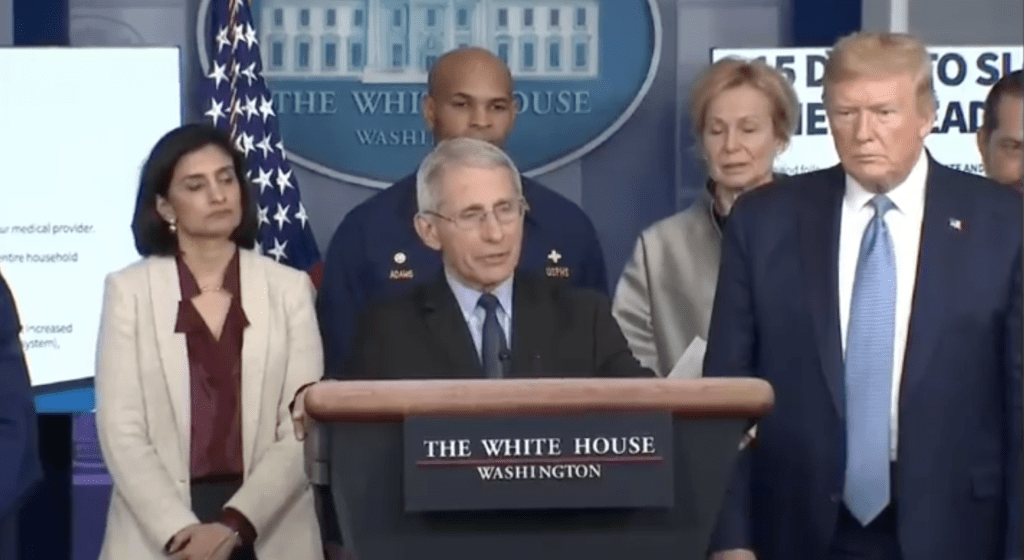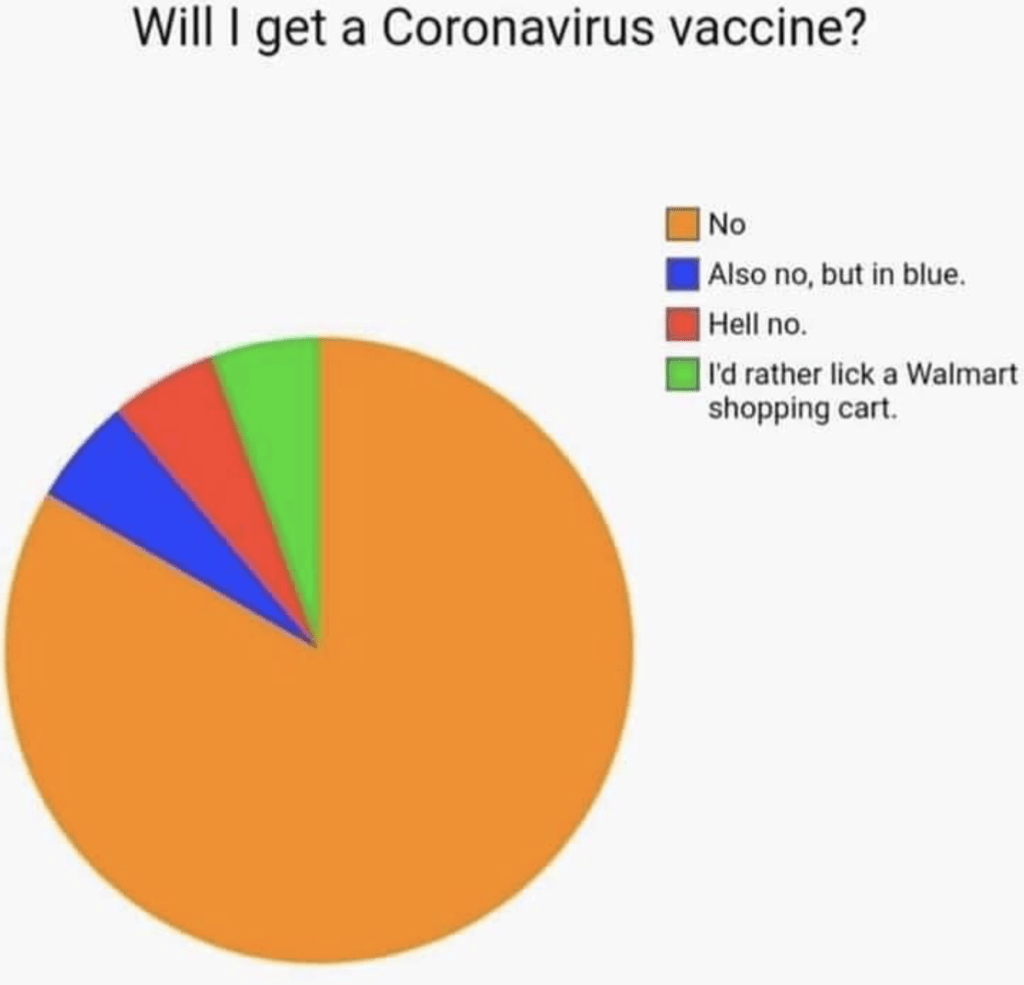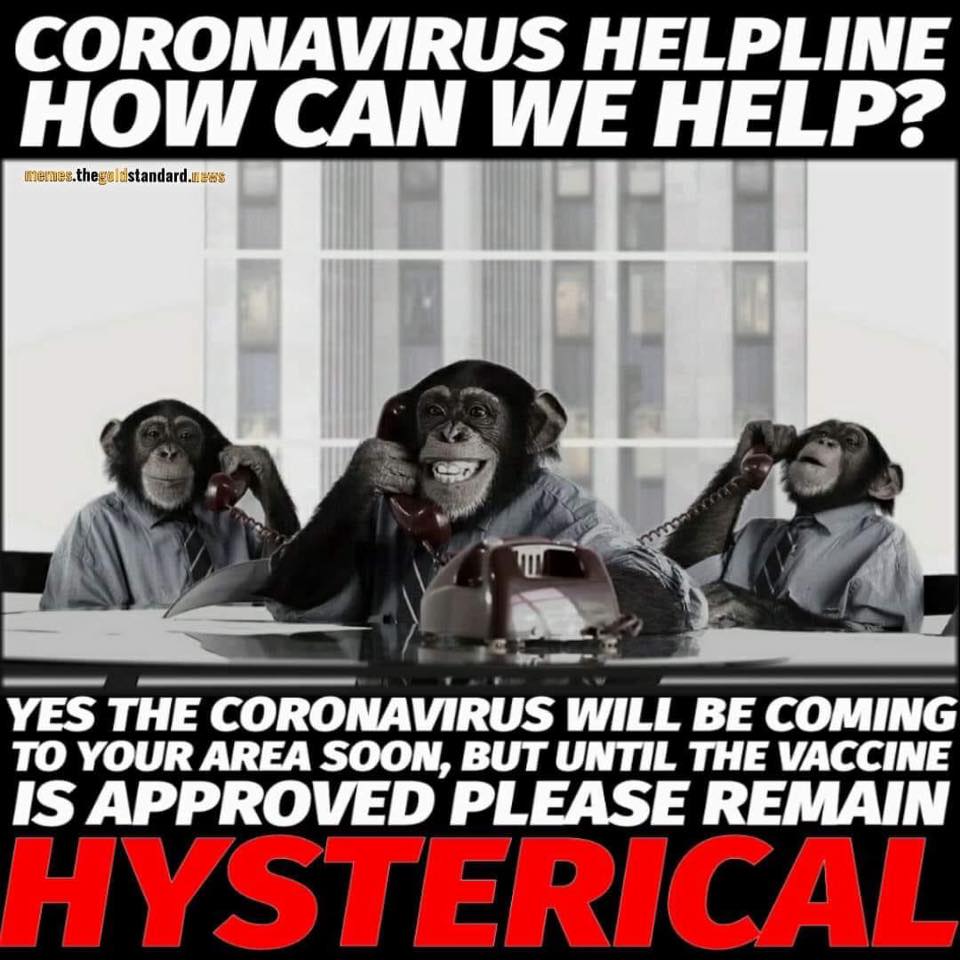
During a press conference at the White House on March 16, 2020, Dr. Anthony Fauci announced that a coronavirus vaccine trial was about to begin.
The race to find a coronavirus vaccine is heating up, with 70 coronavirus vaccines currently in development, as of April 15, 2020.
Some see a coronavirus vaccine as the solution to this pandemic. Others would “rather lick a Walmart shopping cart” than get a coronavirus vaccine.
As urgent as the cries for a coronavirus vaccine have been from some quarters, some of the nation’s top doctors, immunologists, and epidemiologists urge caution.
Can a safe and effective vaccine really be ready in a timely manner?
Is a coronavirus vaccine really the solution?
On March 5th, Peter Hotez, M.D., professor and dean, National School of Tropical Medicine, Baylor College of Medicine, testified before the Congressional Committee on Science, Space, and Technology. Hotez is a champion of the current CDC vaccine schedule. He relentlessly attacks “anti-vaxxers.” However, in his testimony, Hotez mentioned that the danger of some respiratory vaccines is “immunopotentiation.” This is a “problem that sometimes plagues coronavirus and other respiratory virus vaccines.”
Vaccine makers first encountered difficulties making a safe vaccine that worked effectively 50 years ago while trying to develop an RSV vaccine.
Lessons from RSV vaccine failure
Respiratory syncytial virus, or RSV, can cause acute respiratory problems.
Though nearly all American children will be infected (and often reinfected) with it before age two, RSV can be especially dangerous for premature infants. It can also harm children with underlying chronic conditions. But, surprisingly, some children who were vaccinated with the new product became seriously ill once they were exposed to wild RSV.
Two of the toddlers in the study tragically died. More recent attempts at creating an RSV vaccine have also failed.
Manufacturing a respiratory virus vaccine that does not induce damaging inflammation or immune over-activation is a real challenge, Hotez has also said.
The animal model phase should not be skipped in favor of human testing. Unfortunately, in the case of a coronavirus vaccine it already has. But in order for a coronavirus vaccine to be safe, it must be thoroughly vetted and tested. Many are concerned that fast-tracking a vaccine means cutting safety corners.
“We can [actually] make a vaccine pretty quickly now,” Hotez said in an interview with the Texas Tribune. “That’s not the hard part. … The hard part is making certain that it’s safe and that it actually works.”
Increased immunopathology with a coronavirus vaccine
James Lyons Weiler, Ph.D., argues that, with the current technology, it may not be possible to vaccinate against coronavirus without creating tremendous autoimmune problems.
There is no safe vaccine against SARS. Or against MERS. As Lyons Weiler, Ph.D., explains in a notice to clinicians, regulatory agencies, and vaccine manufacturers:
As far as being a potential source for autoimmune-inducing molecular mimics, SARS-CoV-2 is a nightmare. Out of all of SARS-CoV-2 immunogenic proteins, only one does not contain one or more epitopes that are similar to human protein. Considering that, as a coronavirus, like its close cousin SARS, and distance cousin MERS, SARS-CoV-2 seems to be a serious contender for a type of virus that can, if made into a vaccine, cause enhanced disease (something once called “Immune Enhancement”), can occur via a process we can refer to as “Pathogenic Priming.”
…It looks to me that the expected increased immunopathology that will likely occur in vaccinated individuals if they become infected with SARS-CoV-2 following vaccination may represent additional autoimmunity—in other words, vaccine induced autoimmunity—something that we’ve seen solid examples of in the past…
Coronavirus vaccine: A “sexy solution” that might not work
On March 16th, Dr. W. Ian Lipkin, M.D., a professor of Epidemiology at Columbia University, went on MSNBC to convey his disbelief that money is being thrown at what he called “sexy” solutions, meaning the vaccine race. Lipkin asked why focus on vaccination rather than “tried and true repurposing of old drugs” as new treatments.
{Nearly a year later, Dr. Peter McCullough echoed Lipkin’s sentiments in his testimony to the Texas senate.}
Lipkin stated that treatment with older drugs are being overlooked because they are not patentable. Therefore, these drugs are not profitable.
Paul Offit urges caution about the coronavirus vaccine
Then there’s Paul Offit, M.D. Offit is Chief of the Division of Infectious Diseases, Children’s Hospital of Philadelphia. Surprisingly, he’s been especially outspoken against how public health has been dealing with COVID-19.
Usually an unabashed champion of childhood vaccines, Offit has written Facebook posts and given interviews, like this one, urging caution about a coronavirus vaccine.
Offit is worried about a vaccine race. He hopes we don’t rush through safety testing, even as vaccine developers have already skipped animal modeling and gone straight to human trials.
On March 15, 2020, Offit wrote a post on Facebook that 2,000 people reacted to, 1,400 people commented on. The post was shared 2,700 times. That post asks the question:
“Which will do more harm, the virus or the fear of the virus?”
Scared of the novel coronavirus, COVID-19
People are usually scared of viruses for three reasons, Offit writes:
- The virus causes gruesome, disfiguring, permanent symptoms. Smallpox, for example, not only caused life-long facial scarring, it also was a frequent cause of blindness in those who survived.
- The virus has a predilection for children. Polio paralyzed tens of thousands of young children every year until a vaccine finally eliminated the disease from the United States.
- The virus is likely to kill you. Rabies kills virtually 100 percent of people who develop symptoms after a bite from a rabid animal.
“The novel coronavirus circulating in the United States—the one that has caused us to shut down schools, restaurants, sporting events, and virtually every aspect of our culture—falls into none of these categories. Nonetheless, people are scared. Really scared.
“They think that if they catch COVID-19, they have a high likelihood of dying from the disease. Most public health officials have done little to lessen this fear, arguing that people are ten times more likely to die from this novel coronavirus than from influenza. Unfortunately, these officials haven’t made clear the difference between relative risk and absolute risk. Although people are more likely to die from COVID-19 than from influenza, they are far more likely to catch influenza. Therefore, they are far more likely to die from influenza.
“According to the Centers for Disease Control and Prevention, as of March 7, 2020, 36 million to 51 million people have suffered from influenza, 370,000 to 670,000 have been hospitalized, and 22,000 to 55,000 have died from the disease. To put these numbers in perspective, let’s look at countries that have dealt with COVID-19.
Not everyone at equal risk
“China, where COVID-19 originated, has reported roughly 3,000 deaths. The population of China is about 1.4 billion, three times greater than ours. If we suffer an equivalent proportion of deaths, then 1,000 Americans will die from COVID-19, one-twentieth to one-fiftieth of the number who have died from influenza.
“Italy has reported roughly 2,000 deaths from COVID-19 and, as a result, has shut down the country; only grocery stores and pharmacies remain open. Italy has a population of 60 million, about one-fifth of the U.S. population. If we suffer an equivalent proportion of deaths, then 10,000 Americans will die of COVID-19, about one-half to one-fifth of the number of deaths from influenza.
“Not everyone, however, is at equal risk of dying. The virus primarily kills the elderly and those suffering from chronic diseases, which explains the situation in Italy, where 25 percent of its population is more than 65 years of age; in the U.S. it’s 16 percent.
“Wouldn’t it make more sense, then, to ask people who are elderly and infirm to stay away from crowds, thus lessening their chances of contracting the disease. Also, would it make sense to ask people who are sick with respiratory symptoms to stay home.
Focus on common sense
“Shouldn’t we focus on common sense things like washing hands several times a day and standing clear of people who are coughing or sneezing. The federal government can also help by making it easier for businesses to allow people who are ill to stay home.
“In 2009-2010, the world suffered an influenza pandemic caused by swine flu; about 203,000 people were killed by the virus; 12,000 in the United States. The novel coronavirus has killed about 6,000 people to date; 62 in the United States. It doesn’t make sense to shut down our entire way of life to try and stop a virus that is unlikely to harm healthy people and will be far less devastating than the influenza epidemics that we experience every winter and the influenza pandemic we experienced ten years ago.
“Let’s take common sense measures to stop the spread. The precautionary principle dictates caution to prevent harm. But the precautionary principle also dictates that you don’t cause harm in the name of preventing harm. It will take years to recover from the draconian measures that we are currently instituting.”
The numbers have changed since Paul Offit wrote this post. For example, the official death toll in Italy has now surpassed 20,000. But though we’ve been hearing panic-inducing reports all day every day, much of what Offit wrote here is still true. This virus can make people very sick. However, the vast majority of people who get it will recover without harm. At the same time, we have to ask, why is Offit, also Director of the Vaccine Education Center, so vocal cautioning against fearing coronavirus and welcoming a miracle coronavirus vaccine?
Lessons from dengue fever vaccine
Is it because the Filipino dengue vaccine debacle is not yet distant history?
Dengvaxia was a vaccine to fight dengue fever.
In December 2015 the Philippine FDA green lighted the vaccine. In April 2016, the Philippine government spent $67 million on a public school–based immunization program for Dengvaxia.
But, what was first touted as a “miracle vaccine” turned out to be the opposite.
When given to children who had never had dengue fever, the vaccine exacerbated cases of dengue in children. The Philippine government halted the campaign due to vaccine safety concerns. But it was too late. At least 130 vaccinated children had already died and criminal charges were leveled against one of the main researchers.
If it fails, a fast-tracked coronavirus vaccine could lead to the end of trust in public health
Millions of people will likely line up for an unsafe, fast-tracked coronavirus vaccine. If this fast-tracked vaccine with no proven safety record sickens or kills hundreds or thousands of people, or causes insidious autoimmune diseases, it will be a public health disaster. This disaster could potentially do more harm than the virus itself. It could lead to the end of all trust in the vaccination program in this country.
Years ago I interviewed Paul Offit. I quoted him extensively in an article for Mothering magazine, “The Vaccine Debate.” I appreciated his thoughtfulness, intelligence, and willingness to dialogue.
The photographer Mothering hired to take pictures of him for the article brought her unvaccinated 3-year-old along. She was nervous about meeting Offit, who has been so critical of non-vaccinating families. She reported back that he was anything but judgmental. In fact, the shaming scolding public figure was personable and kind, engaging her 3-year old, and happy she was there.
So perhaps no one should be surprised that Offit, though in the past he’s recommended “journalism jail” for journalists who write about the downside of vaccines and report on children with vaccine injuries, recently referred to vaccine safety advocates as “heroes.”
Paul Offit’s thoughtful and nuanced anti-status-quo opinion about the coronavirus crisis and the coronavirus vaccine gives me hope. Perhaps the apology so many of us have been waiting for will be coming soon?
A girl can hope.
Not anti-anything, just pro-safety
We like to label people: pro-vaccine and anti-vaccine. But, honestly, the smear phrase “anti-vaxxer” is a meaningless term, one often used to stir up hate.
Most families who speak out in favor of vaccine safety did everything their doctors told them. They vaccinated on schedule, used acetaminophen, gave their children antibiotics, all according to the doctor’s orders. They did everything right, and then tragically they watched their children’s health decline before their eyes.
These families aren’t “anti-vaxxers” but “ex-vaxxers.” And there is no reason to shame them. After all, their crime was simply to follow their doctors’ orders.
Despite this, the mainstream media almost always portrays families with vaccine safety concerns as “selfish” or “crackpots.” Even though they’re not. The truth is that those pushing the government for a safer vaccine schedule aren’t anti-vaccine. Are champions of safe driving “anti-car”? No. They are, however, in favor of medical choice. They promote safe vaccination, vaccine safety, and children’s health.
People or profits?
When considering a coronavirus vaccine we have to ask the question: Which is more important, people or profits?
Maybe you follow the CDC’s current vaccine program to a T. Or maybe you space out vaccines for your family. Perhaps you have deep reservations about vaccination, or maybe you’re squarely in the “anti-vaccine” camp.
Whatever your feelings about vaccines in general and the coronavirus vaccine in particular, I think we can all agree: Our nation’s health is the most important thing. We all want to be safe from coronavirus. And from Big Pharma’s greed.


Memes about a coronavirus vaccine, like this one, are popular on Facebook and other social media.
Related articles:
13 Reasons Why the CDC is Right and You Should Vaccinate Your Kids
Aluminum Toxicity in Infants and Small Children
Vaccine Safety in the Spotlight at Times Square
Do You Need to Get a Coronavirus Vaccine? Dr. Jane Orient Weighs In
Published: April 15, 2020
Last update: April 6, 2021
Can you please research the new nanotechnology that they have been developing for vaccines? That’s what they are going to unveil. They will do it as a “breakthrough” godsend technology that fixes all these old problems with respiratory vaccines. So it would help to have a counter argument on that it seems??? Thank you!
It seems that “breakthrough” technology would be the kind that needs the most thorough testing – certainly not the kind that you rush.
Maybe _when_ all these surprisingly or suddenly cautious doctors pivot and jump on a new COVID-19 “vaccine,” the press will use their on-record reservations as the reason for the public to now trust them implicitly and follow their ‘cautious,’ ‘well-considered,’ recommendation. Maybe they’ve learned from their ill-considered, callous, and often reckless remarks in the past and are now taking a new pre-marketing approach. I feel some foreboding that they will jump on the V bandwagon when they’re told it’s time to hop it up.
I agree. They’re playing the long game. They either need to oresent themselves as cautious so people will trust their recommendations later, or else they actually are concerned that problems will arise, so they are sacrificing the potential financial gains from this vaccine to save the vaccine program as a whole. Plus, they still get paid for working on and “trying” to produce this one. Lots of funding being funneled into their organizations.
Shut them down please.. backing you all the way..